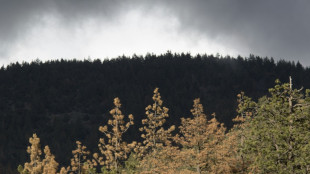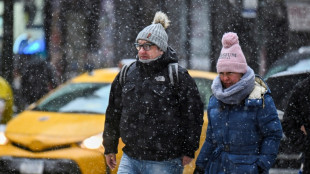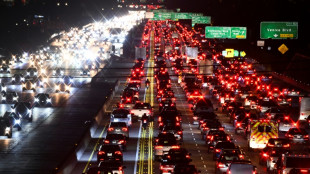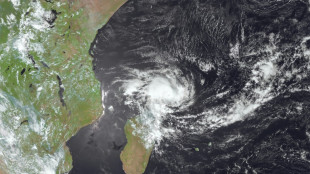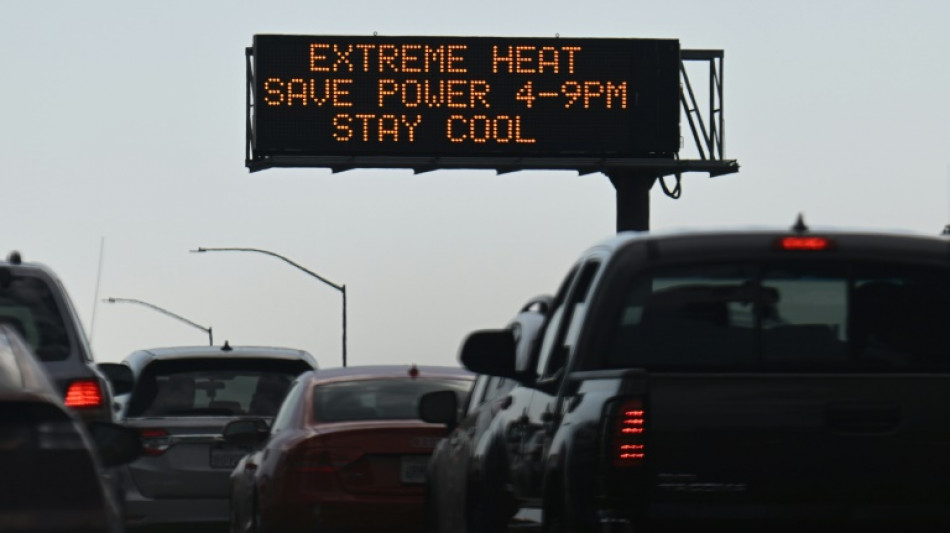

Two dead, thousands told to flee California wildfire
At least two people are dead and thousands have been ordered to flee a rapidly spreading fire in California, with the region's oppressive heatwave expected to peak Tuesday.
Several buildings were destroyed as the Fairview fire erupted southeast of Los Angeles, racing to consume 2,400 acres (1,000 hectares) in less than 24 hours.
Firefighters said two people were known to have died in the blaze, and one person had been hospitalized with burn injuries.
More than 3,000 homes are under orders to evacuate, and all local schools have been shuttered.
The blaze was "spreading very quickly before firefighters even got on scene," a local fire department spokesman said on Twitter.
California is in the middle of a ferocious heatwave, with temperatures of 110 Fahrenheit (43 Celsius) being recorded in several areas.
That, coupled with a two-decade drought that has left the countryside tinder dry, is creating ideal conditions for explosive wildfires.
The heat hit the state, as well as parts of neighboring Arizona and Nevada, last week, and is forecast to continue until around Thursday.
- Flex Alert -
The California Independent System Operator (ISO), which runs the state's power grid, has issued several consecutive "Flex Alerts."
These call on households to limit power consumption between 4:00 pm and 9:00 pm to avoid straining the over-burdened system.
That typically means turning up the thermostat on air conditioning systems, avoiding using major appliances, and not charging electric vehicles during this time.
But California ISO president Elliot Mainzer warned Monday that an incredibly hot Tuesday would put even more pressure on the grid, and called for consumers to redouble their efforts.
"This is an extraordinary heat event we are experiencing, and the efforts by consumers to lean in and reduce their energy use after 4:00 pm are absolutely essential," said Mainzer.
"Over the last several days we have seen a positive impact on lowering demand because of everyone's help, but now we need a reduction in energy use that is two or three times greater than what we've seen so far as this historic heat wave continues to intensify."
California has abundant solar installations, including on homes, which typically provide for around a third of the state's power requirements during daylight.
But when the sun goes down, that supply falls quickly, leaving traditional generation to plug the gap. The problem is particularly acute in the early evening when temperatures are still high, but solar starts dropping out of the power mix.
Scientists say global warming, which is being driven chiefly by humanity's unchecked burning of fossil fuels, is making natural weather variations more extreme.
Heat waves are getting hotter and more intense, while storms are getting wetter and, in many cases, more dangerous.
W.Murphy--NG
